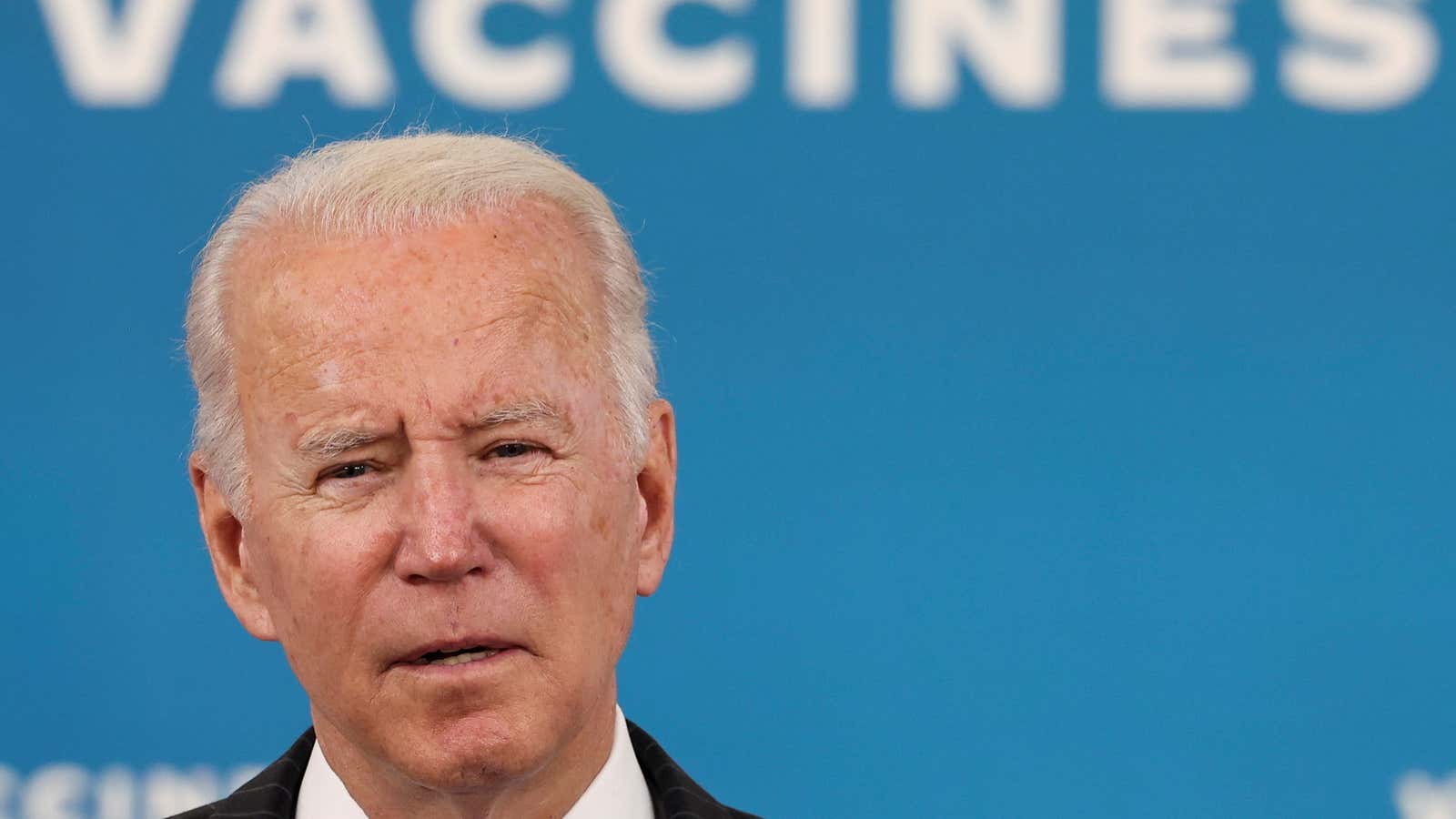Just as the recovery was firming up, a new variant of covid-19 is hitting the global economy. It’s still unclear what omicron’s full effects will be. Scientists still have many questions about how fast it spreads, how severe its symptoms are, and how much protection vaccines offer against it.
But after enduring five variants, one more dangerous than the last, the economy has learned a few things about dealing with covid. For starters, this time around the world has responded more quickly than it did to delta, suggesting it’s in a better position to absorb whatever shocks omicron may bring.
Omicron response
The world has only known about the new variant since Nov. 25, but countries and institutions have already rolled out a slew of policies, from strengthening booster guidelines to pushing for more genomic sequencing worldwide. Meanwhile, vaccine makers have begun coding their mRNA vaccines to address the variant; Moderna expects to be ready to distribute its omicron booster by early 2022.
Consumers and companies, too, are better prepared to tackle the new variant. At this point, they have adapted to live with the virus. For example, while the first wave shuttered gyms, many have since started offering online classes.
And omicron is hitting at a time when supply chains have found some workarounds covid-related disruptions. Cargo is now being transported in passenger flights instead of ships to avoid crowded ports, and investors are flocking to startups that can build cargo drones. Small manufacturers, meanwhile, are getting creative about where they source their raw materials.
Christine Laguarde, the president of the European Central Bank, said on Sunday the EU economy should be more resilient to a fifth wave because of this experience. In the US, president Joe Biden ruled out lockdowns, which proved to be effective at containing the virus but disastrous for the economy. Instead, he’s calling for more vaccinations and testing.
Omicron’s impact on the economy
Omicron’s effects will depend on how dangerous it is. If it’s anything like delta was in the third quarter, Goldman Sachs expects global GDP to drop by 0.4% in 2022. In the worst case scenario, however, the economy’s growth would decline further. If the new variant is just as contagious, but much milder than delta, the global economy could expand.
Oxford Economics, an economic forecasting firm, expects omicron to have a similar economic impact to delta in the third quarter, and predicts it will lower its world GDP forecast for next year by 0.3% when it updates it in early December.
Omicron’s effect on inflation is also unclear. Oil prices, which fueled US inflation in October, slid to their lowest since April 2020 on the omicron news on Friday. But by Monday they were up again, given how little is still known about the variant. In Goldman Sachs mild downturn scenario, the bank expects global prices to initially drop and bounce back along with economic growth. It’s harder to predict inflation levels in the worst case scenario, it said.
For now, many economists are taking a wait-and-see approach.
Jerome Powell weighs in on omicron
The variant raises more questions for the Federal Reserve’s next steps. Atlanta Federal Reserve chair Raphael Bostic, who is a voting member of the central bank’s monetary policy committee, said on Nov. 26 that he is open to accelerating tapering of the central bank’s bond-buying program and to one or two interest rate hikes next year.
However, earlier this month, Fed chair Jerome Powell said the central bank had underestimated the impact of the delta variant when it came on the scene and emphasized “humility” when assessing what full employment would look like in the future.
“The recent rise in covid-19 cases and the emergence of the omicron variant pose downside risks to employment and economic activity and increased uncertainty for inflation,” Powell in prepared remarks set to be delivered Nov. 30 at a hearing before the Senate Banking Committee. “Greater concerns about the virus could reduce people’s willingness to work in person, which would slow progress in the labor market and intensify supply-chain disruptions.”
Some are already predicting omicron will likely keep the Fed from making any changes to its policy during its meeting this month.
